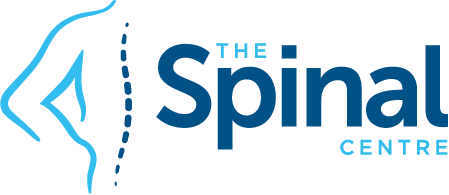
The Role of CoEnzyme Q10 in Cardiovascular Disease
 The
The
term cardiovascular disease (CVD) refers to all heart disease,
cerebrovascular disease, and diseases of the arteries, arterioles, and
capillaries. According to the Australian Institute of Health and
Welfare, around 3.67 million Australians are affected by heart, stroke
and vascular disease. In 2002, these conditions accounted for more than
50,000 deaths (37.6% of all deaths).
CoQ10 is a compound naturally occurring in the human body. Even
though the nutrient can be synthesised in vivo, situations may arise in
which the body cannot produce sufficient quantities to meet the body’s
needs. Moreover, endogenous synthesis declines progressively as we
age, starting after the age of 20.
CoQ10 deficiency has been documented in patients with various types of cardiovascular disease:
Cardiomyopathy
Patients with cardiomyopathy (enlarged heart) are often deficient in
CoQ10. Studies show that oral supplementation with this nutrient may
lead to extraordinary clinical improvements in these patients,
including increased tolerance for physical activity and extended life
expectancy.
Congestive Heart Failure (CHF)
CoQ10 is a critical adjuvant therapy for patients with CHF, even
when conventional medical therapy is successful. Adjunctive therapy
with CoQ10 may allow for a reduction of other pharmacological
therapies, improvement in quality of life, and a decrease in the
incidence of cardiac complications. Reduced hospitalization rate for
worsening of heart failure has also been reported.
Ischaemic Damage Due to Myocardial Infarction or Cardiac Surgery
The supply of oxygen to the heart may be reduced as the result of
myocardial infarction (heart attack) or following cardiac surgery.
When the oxygen supply is restored (reperfusion), increased generation
of free radicals is though to be an important contributor to myocardial
damage.
Studies have demonstrated that pretreatment with CoQ10 may decrease
myocardial damage due to ischemic-reperfusion. According to Australian
researchers, oral CoQ10 therapy before cardiac surgery also improves
efficiency of mitochondrial energy production, improves post-operative
heart function, and shortens hospital stay.
Angina Pectoris
Ischaemia of the myocardium may also lead to angina pectoris (:chest
pain”). Patients receiving 150mg CoQ10 daily for four weeks showed a
reduced frequency of anginal episodes by more than half, increased
tolerance for exercise, and reduced need for nitroglycerin tablets.
Hypertension
CoQ10 is thought to reduce elevated blood pressure by normalisation
of peripheral resistance. Because it is involved in correcting
metabolic abnormalities that are involved in the pathogenesis of
hypertension, effects on blood pressure may not be seen until after
4-12 weeks of therapy.
Effective dosage used in clinical trials range from 100mg to more
than 200mg daily. In one study, concomitant use of CoQ10 with
anti-hypertensive drugs allowed 51% of patients to discontinue between
one and three drugs.
Dr. Hooper’s Comment
All patients with cardiovascular disease, ESPECIALLY IF YOU ARE ON STATIN DRUGS, should consider the use of Co Enzyme Q10.
All stating drugs leech out CoQ10 from your body. A fact the drug companies forget to tell you.
I believe that an integral part of the management of all patients
with cardiovascular problems needs to include the basic building blocks
of a great multimineral, a fish oil, increased magnesium and a high
quality C0Q10 supplement.
So if you have cardiovascular disease, you have hypertension (high
blood pressure), or are on any blood pressure medication here are a few
things you need to consider:
- Use a quality multimineral and multivitamin.
I believe that you should eat well and supplement well. Mineral
deficiencies are a big issue for cardiac patients. Ensure that you are
getting that basic nutritional building blocks essential for good
health. - Use a quality fish oil. According the study; ‘EPA, at a dose of 1800 mg per day, is a very
promising regimen for prevention of major coronary events’. That is;
the use of quality fish oil will help reduce your chance of a heart
attack. - Use a good source of Coenzyme Q10.
Statin drugs dangerously reduce the amount of Coenzyme Q10 within the
body. If you take a statin drug you MUST supplement with CoQ10. - Supplement with Magnesium.
Magnesium is important in helping muscle tissue repair. High dose
magnesium will also reduce muscular pains and discomfort. Magnesium
will also assist in irregular heart beat and tachycardia. - Modify your diet as outlined in the Health Promoting Nutrition.
There is more to maintaining a health heart than eating low fat
margarine (don’t do it) and weight watchers desert (full of
preservatives). Take time to read about correct nutritional strategies
under the Wellness Program.





